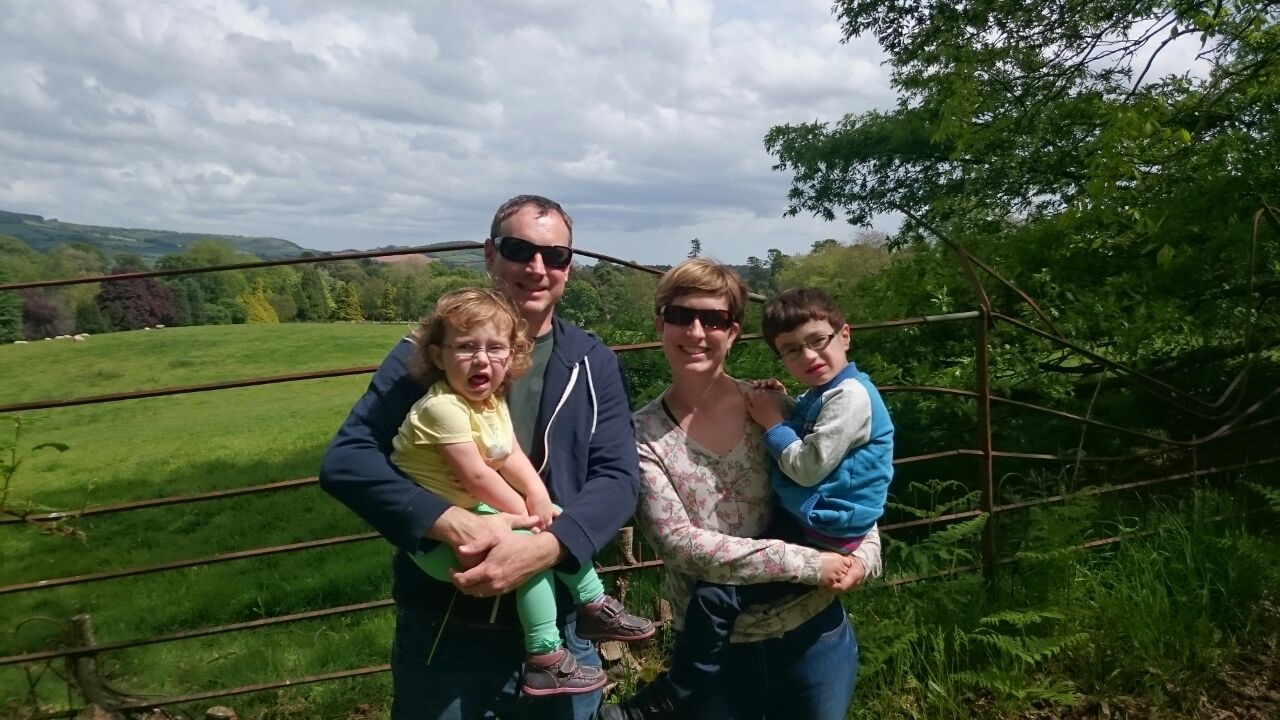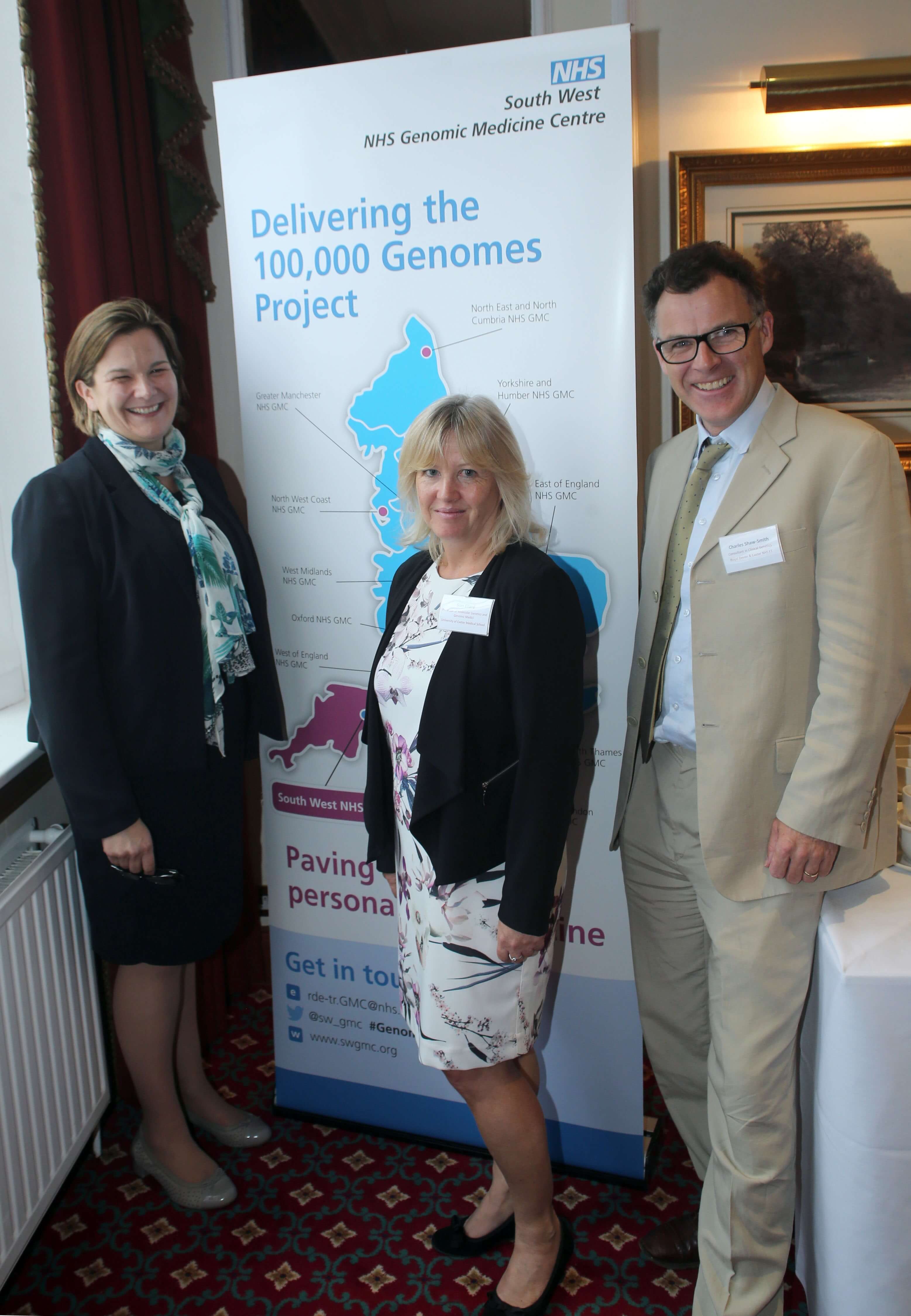Families affected by rare conditions or cancer across the South West are having their genomes sequenced as part of a national bid to shed new light on the genetic causes of disease.
Since launching in December 2014, the South West NHS Genomics Medicine Centre (SWGMC) has enrolled 372 patients with a rare disease, or cancer, for genome sequencing to understand more about their condition. Nearly 4000 samples will be provided by hospitals across the South West.
On 28 June, patients and their families joined with healthcare professionals from across the region to celebrate the project. The South West NHS Genomics Medicine Centre is a partnership between 7 NHS hospitals in Devon, Cornwall and Somerset, supported by the South West Academic Health Science Network. The 100,000 Genomes Project was announced by the Prime Minister in 2012 to transform diagnosis and treatment for patients with cancer and rare diseases in the fast-emerging field of genomic medicine.
Opening the day, Professor Sue Hill, Chief Scientific Officer at NHS England, described the aims of the national project and how it will shape future healthcare. Professor Sian Ellard, Director of the South West NHS Genomic Medicine Centre and Professor of Genomic Medicine at the University of Exeter Medical School, reported local progress before two families talked about their experience of the project.
Professor Ellard explained why this project is so important:
“Genomic medicine will improve healthcare in many ways, through better diagnosis and treatment of rare diseases and increased knowledge of cancer biology to devise better therapies. We’re really proud of the contribution we have made to the national goal of sequencing 100,000 genomes and would like to share our progress with those involved – healthcare staff, patients and their families.”
The role of the SWGMC is to enroll patients to the project and to communicate the genome sequencing results back to patients. One of those patients is Aidan Scholey. Seven-year-old Aidan is the first member of the Scholey family to show signs of a rare genetic condition, and his mother Maria hopes the 100,000 Genomes Project will help provide some answers.
Aidan’s condition is so rare that it has not yet been diagnosed with a named condition. His parents were not worried when he was born small, but over time Aidan’s lack of growth gave clues that his development was showing signs of a disease. Still small for his age, Aidan also has a retinal dystrophy that impairs his vision.
Maria Scholey, who lives in Exeter, said: “Aidan is a happy, placid and much-loved little boy. We’re hoping that a genetic diagnosis would give us more information about the longer term implications of his condition and how it might develop. Genetic therapies are also a rapidly-evolving area of medicine, so it is possible that getting involved could mean that Aidan could receive help in future.”
The family has provided blood samples to the South West NHS Genomics Centre. It is hoped that the genome sequencing will provide a diagnosis for Aidan and others like him – but the family is aware that it may not find the answer.
Mrs Scholey said: “It would be great to get a diagnosis for Aidan, but even if we don’t, we see our involvement as part of a bigger picture. It’s possible that we may even find out something we don’t want to know about the way Aidan’s condition will develop – but this is far bigger than just one child. It’s about contributing to information that can be shared worldwide and could help others. It’s the future of medicine.”
For more information, please contact: Marie Taylor on 01392 – 408208 or mobile 07730427592

Mr and Mrs Scholey with Aiden and Erin

From the left: Rosie Benneyworth, Managing Director of SW Academic Health Science Network; Professor Sian Ellard, Director of the South West NHS Genomic Medicine Centre; Dr Charles Shaw-Smith, Consultant Clinical Geneticist and SW GMC Rare Disease Lead